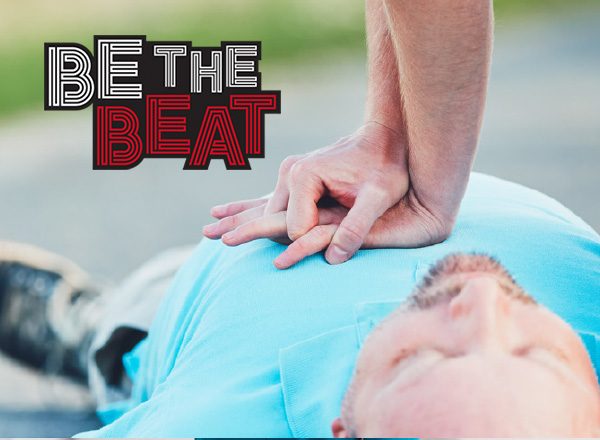February 1st marks the start of American Heart Month. We are joining the American Heart Association to help everyone Be the Beat in their community. We will share the importance of how bystander CPR can help save lives during a sudden cardiac arrest event.
 Each year, approximately 350,000 Americans die from a sudden cardiac arrest event. About 90% of people who experience cardiac arrest outside of a hospital won’t survive. Yet CPR, especially if performed immediately, could double – even triple – a cardiac arrest victim’s chance of survival.
Each year, approximately 350,000 Americans die from a sudden cardiac arrest event. About 90% of people who experience cardiac arrest outside of a hospital won’t survive. Yet CPR, especially if performed immediately, could double – even triple – a cardiac arrest victim’s chance of survival.
This Heart Month, hear from survivors who have beaten the odds. When seconds mattered the most, CPR made the difference in whether friends, family, or loved ones survived. We’re honored to help share these stories of survival from some of our organizations who have found quality improvement resuscitation education helpful in saving more lives from sudden cardiac arrest.
Read survivor stories on the dedicated Heart Month page here.
Each link in the Chain of Survival (adult Out-of-Hospital Chain of Survival depicted below) has an impact when properly executed to increase survival likelihood from sudden cardiac arrest. Like any chain, the Chain of Survival is only as strong as its weakest link. Throughout Heart Month, we will share the importance of each link and each link's impact on survival outcomes.

RQI Partners is proud to be part of the American Heart Association, the global authority on heart health education, research, and CPR training. The mission of RQI Partners is to help save more lives from sudden cardiac arrest, a life-threatening event often caused by heart disease.









